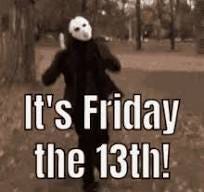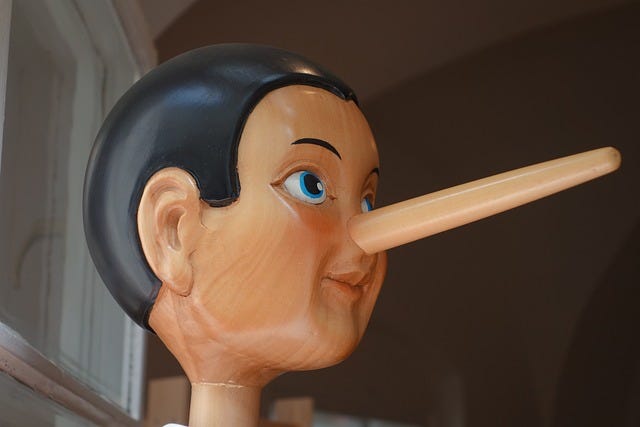When I think back to my childhood in New York City, I realize how much of life was sprinkled with little rituals and magical beliefs that we never even questioned. They were just part of the air we breathed, like the smell of fresh bagels from the corner bakery or the honking of taxi horns.
One of the earliest superstitions I remember happened every morning on the way to school. As kids, we would walk along the sidewalks, carefully avoiding the cracks. Step on a line, break your mother’s spine, we would chant in serious little voices. It was not a game. It was a duty. We hopped, skipped, and jumped along the pavement, convinced that our mothers' well-being depended on our careful footsteps.
At home, it was the broken mirror that brought a different kind of dread. One day my grandfather accidentally dropped a mirror, and I will never forget the heavy look on his face. Seven years, he said. And I knew without asking what he meant. Seven years of bad luck. He said it so seriously that it might as well have been written into law.
When a baby was born, a whole new set of superstitions came into play. My grandparents believed it was dangerous to admire a baby too much. If you dared to say how cute the baby was without taking precautions, you were asking for trouble. So you would quickly say kinahorah, a Yiddish word meant to protect the baby from bad luck.
There were other strict instructions too. You were not supposed to stand behind a baby because their eyes might roll back into their heads. I did not understand the logic of it, but when you are little, you do not question these things. You just nod solemnly and follow the rules.
Outside the family, the world was full of its own warnings. If a black cat crossed your path, you were doomed for the day. If you spilled salt on the table, you had to grab a pinch and toss it over your shoulder to blind the devil who was said to be lurking nearby. I could never remember if it was the right shoulder or the left, so just to be safe, I sometimes threw salt over both.
Sneezing was another serious business. Even today, people say God bless you without a second thought, but back then, it was deeply tied to the fear of illness. During the time of the Black Plague, a sneeze could mean death was close. Saying God bless you was believed to be a kind of shield, a magic word that could keep you safe.
There were so many other superstitions floating around like invisible guests at every meal and every walk. Some people believed you should never open an umbrella indoors, or it would bring bad luck raining down on you. Others said if your left palm itched, you were going to lose money, but if your right palm itched, you would soon be rich.
If your ears were burning, someone was talking about you. If you found a penny lying on the street and it was heads up, it was good luck. If it was tails up, you were supposed to leave it there or risk bad fortune. And if you made a wish while blowing out birthday candles, you had to keep the wish a secret, or it would never come true.
And an itchy hand could be a sign that you are coming into some money, especially if it’s the itchy palm of your left hand.
Looking back, I realize that these superstitions were not just about luck or fear. They were part of a shared language, a way to connect with one another, a way to feel just a little more in control in a big and sometimes scary world.
Even now, part of me hesitates before walking under a ladder or opening an umbrella inside. And when I see a black cat, I cannot help but whisper to myself a little wish for good luck, just in case.
Let’s not forget “liar, liar, pants on fire,” and you’re growing a “long nose.”
Maybe that is the real magic of superstitions. They keep alive the playful, hopeful part of us that still wants to believe that a few small words or actions might make a difference in the world.
And truth be told, it is kind of fun to hop over sidewalk cracks once in a while, no matter how old you are.
A plea to my readers: I’m not superstitious at all…please do not walk under open ladders!!! And, keep your fingers crossed:












Thank you, Allan, for reminding me of all these ways of coping. I remember step on a crack, break your Mother’s back—but I suspect there are regional dialects even in superstitions.